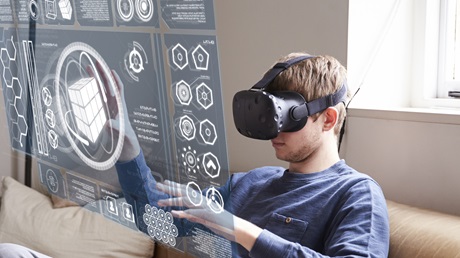VR’s greatest strength is not escapism, but empathy.

The future arrived in a cardboard sleeve just before lunch on a rainy Wednesday morning. I don’t believe the delivery woman knew what she had in her hands—otherwise, she might not have dropped the parcel in a pile of soggy leaves and then vanished up the driveway with no more ceremony than a perfunctory rap on the door. I brought the future inside, followed the assembly instructions, and strapped it to my face. Moments later, I was yelping and flailing my legs as computer-generated seagulls flocked towards me on a stony cliffside in virtual reality.
The future is not as graceful as I imagined.
In the eyes of some industry observers, 2016 is the “year of virtual reality” for tech and entertainment. Three high-profile virtual reality (VR) consumer devices launched this year, each promising to deliver immersive visual and aural experiences that radically change the way we consume our media. Oculus Rift, Facebook’s $2 billion investment, released earlier this year, as did the Vive, produced by hardware manufacturer HTC and videogame developer Valve. Sony released its PlayStation VR accessory for the PlayStation 4 on October 13, which will likely be featured front and center in the electronics retail space this holiday shopping season. After decades of false starts and dashed hopes, it seems 2016 is the year that virtual reality technology leaves the shadows of geek pipedreams and enters the mainstream.
As I pondered my time kicking and screaming at imaginary coastal wildlife from my couch, a Tertullian-esque question arose in my mind: “What has Silicon Valley to do with Jerusalem?” In other words, why should believers care about this new wave of technology, and what are we to think of it? …


